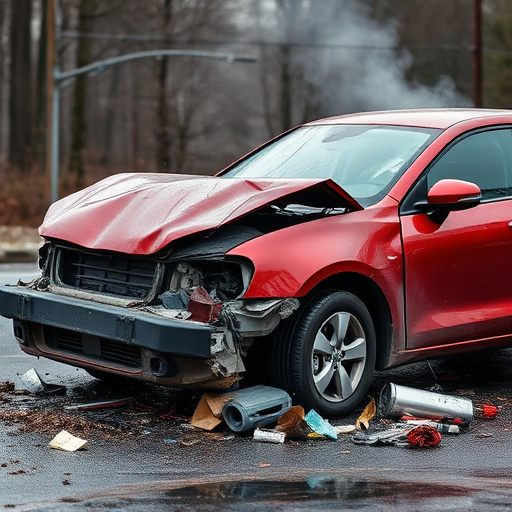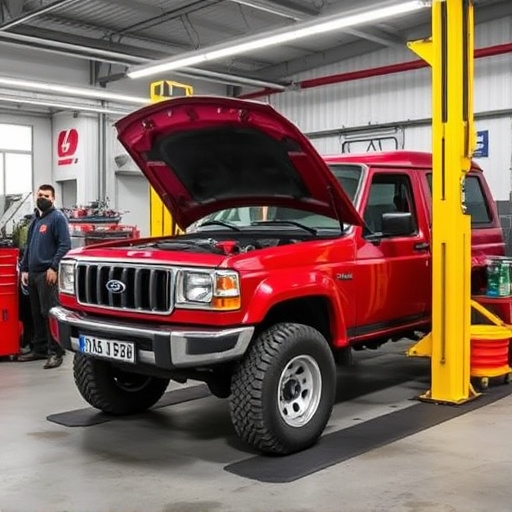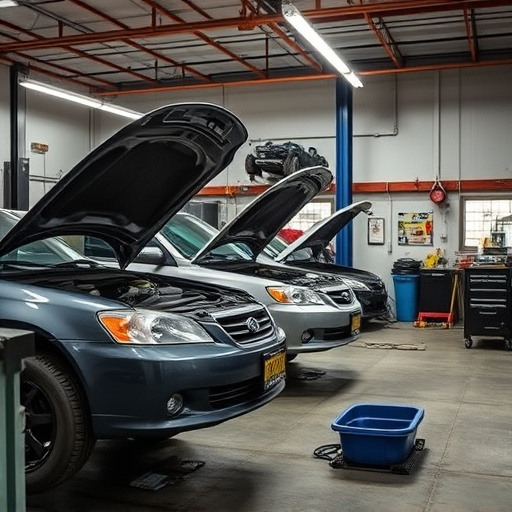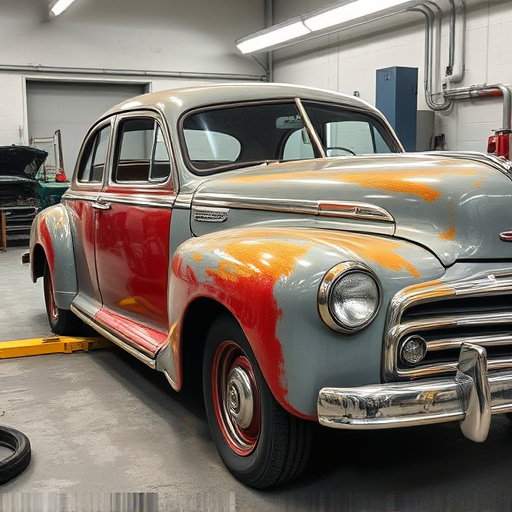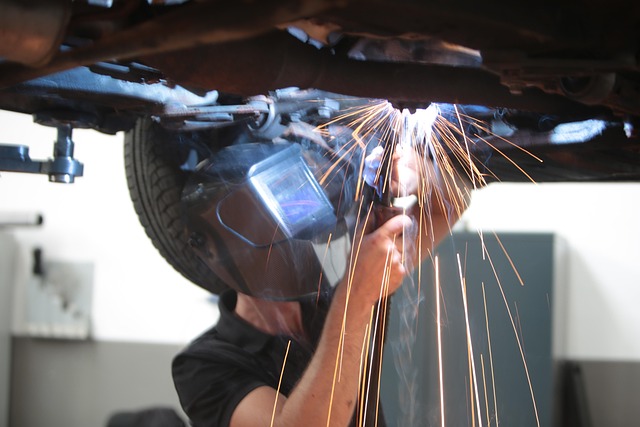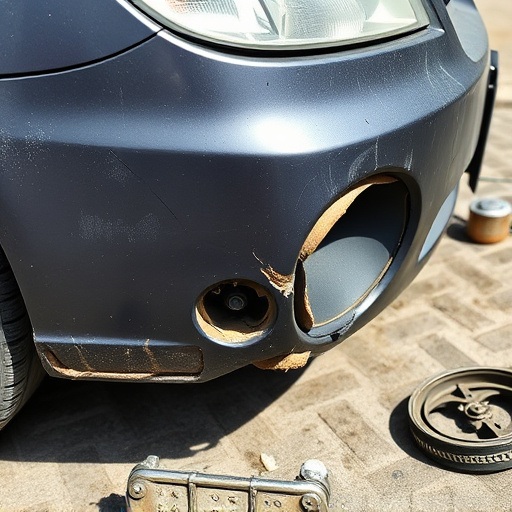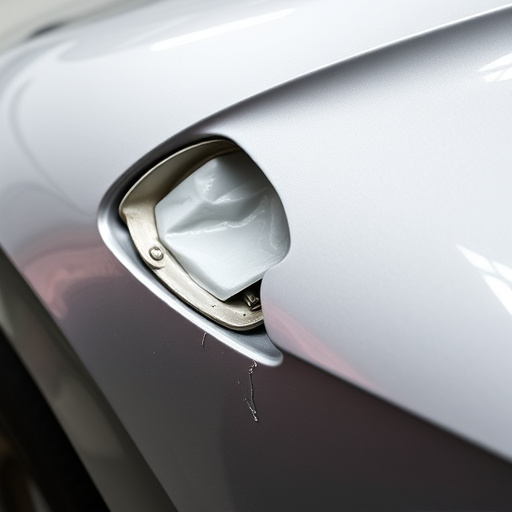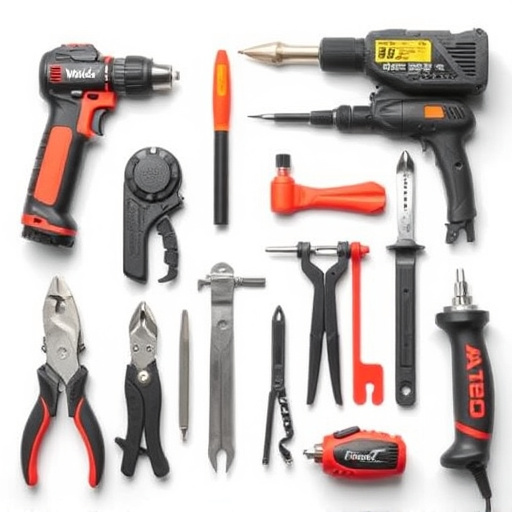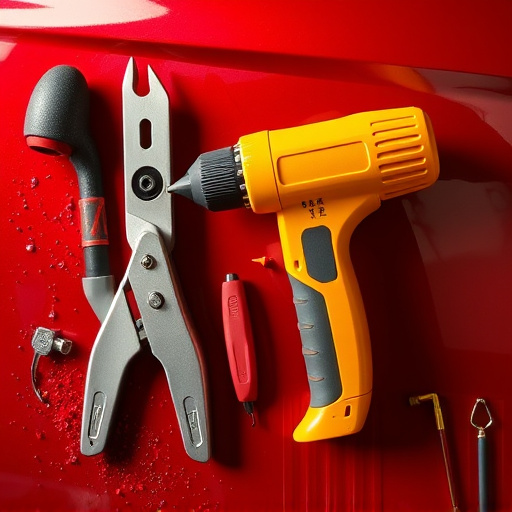In competitive urban centers, metropolitan collision repair facilities offer efficient services for damaged vehicles, with advanced tools and skilled technicians handling hail damage and structural integrity. Insurance companies play a critical role in assessment, billing, and claims process, ensuring timely compensation for repairs through meticulous inspections and collaborative estimates review. Efficient communication between shops and insurers expedites claim resolution, improving customer satisfaction by speeding up accurate vehicle repairs.
In metropolitan areas, collision repair shops play a vital role in restoring vehicles to their pre-accident condition. This article explores the intricate process these shops undertake, focusing on how they collaborate with insurance companies. From understanding the unique challenges of metropolitan collision repairs to examining the insurance industry’s involvement in damage assessment and streamlined billing, we delve into efficient communication strategies that expedite claims resolution.
- Understanding the Metropolitan Collision Repair Process
- The Role of Insurance in Damage Assessment and Billing
- Efficient Communication and Coordination for Quick Claims Resolution
Understanding the Metropolitan Collision Repair Process

In metropolitan areas, where collision repair shops are abundant, the process is streamlined to cater to a high volume of vehicle owners. When a car suffers damage, whether from an accident or hail, owners often turn to specialized shops for repairs. These businesses employ skilled technicians who assess the extent of the damage using advanced diagnostic tools. For instance, a mercedes benz collision repair shop will meticulously inspect every component, from the chassis to the vehicle bodywork, to ensure precision and safety during the repair process.
Hail damage repair is a common service offered by these shops due to the frequent occurrence of weather-related incidents. The technicians use their expertise to restore vehicles to their pre-damage condition, ensuring flawless finishes and structural integrity. Efficient communication with insurance providers is another key aspect; metropolitan collision repair shops work closely with insurers to facilitate smooth claims processes, ensuring policyholders receive timely compensation while their vehicles are expertly restored, including any necessary hail damage repairs.
The Role of Insurance in Damage Assessment and Billing

In the realm of metropolitan collision repair, insurance plays a pivotal role in facilitating the process of damage assessment and billing. When a vehicle incurs damage due to an accident, insurance companies step in to evaluate the extent of the harm. This involves meticulous inspection by trained professionals who document every detail, from minor scratches to significant structural dents. The insurance provider’s assessment is crucial as it sets the stage for the repair bill, influencing the costs that metropolitan collision repair shops will incur.
The seamless collaboration between these repair shops and insurance companies ensures a structured billing process. Repair shops submit detailed estimates outlining the scope of work, parts required, and labor costs. Insurance adjusters review these estimates, cross-referencing them with their own assessments, to approve or negotiate the bill. This collaborative approach not only facilitates prompt vehicle restoration through body shop services but also safeguards against fraudulent claims, ensuring that metropolitan collision repair shops are compensated fairly for their auto body repairs and vehicle restoration expertise.
Efficient Communication and Coordination for Quick Claims Resolution

Efficient communication and coordination between metropolitan collision repair shops and insurance providers are pivotal for expediting claims resolution. When a vehicle collision occurs, the involved parties must quickly align on next steps to minimize disruption for all stakeholders—from policyholders seeking repairs to insurers aiming to manage costs and settlement times.
Collision repair shops play a critical role in this process by clearly communicating the scope of damage, estimated repair timelines, and potential cost implications to insurance adjusters. Similarly, insurers facilitate coordination by promptly assigning adjusters to claims, providing clear guidelines for repairs, and ensuring timely approvals for necessary procedures, including paintless dent repair or vehicle dent repair services. This collaborative approach not only speeds up the claims process but also enhances customer satisfaction by delivering swift and accurate repairs.
Metropolitan collision repair shops play a vital role in facilitating swift claims resolution for insurance providers. By understanding the unique dynamics of urban environments, these shops streamline the damage assessment and billing process. Efficient communication and coordination between insurers, repair facilities, and policyholders ensure that everyone involved is kept informed, leading to quicker turnaround times and less hassle for all parties. This collaborative approach not only benefits customers but also contributes to the overall efficiency and effectiveness of metropolitan collision repair services.
